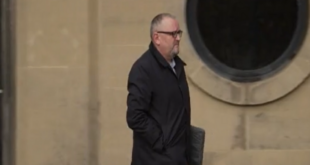Vesa, for its part, has made some platitudes about how Sainsbury’s “strong brand” and well-located stores in the more prosperous south-east make it “an attractive long-term investment opportunity”.
But it seems unlikely that the tycoon is happy to remain a passive shareholder, and he continues to play his cards close to his chest.
Reports suggest he is keen to spearhead consolidation among the major European supermarkets, having tried to take over German giant Metro, and built a big stake in France’s Casino.
Another theory is that he has merely spotted some great hidden value in Sainsbury’s, having made a fortune on Royal Mail’s unexpected recovery. That seems unlikely.
With its shares having gone sideways for the last three decades, the prospect of Sainsbury’s suddenly discovering a secret formula that propels it to new levels is not one with a great deal of probability attached to it.
While Christmas trading was undoubtedly strong, it masked a difficult quarter with store sales falling 4.5pc, clothing taking a 3pc hit, and turnover at Argos off a sizeable 16pc.
It comes at the worst possible time, with Aldi and Lidl’s German invasion showing little sign of slowing, Tesco resurgent, and a revitalised Waitrose and Marks & Spencer threatening a fierce fight to feed middle England.
Sainsbury’s meanwhile seems blighted by strategic drift, unsure of where it sits in a crowded field. If Kretinsky has a masterplan, he should activate it soon.
Source link



